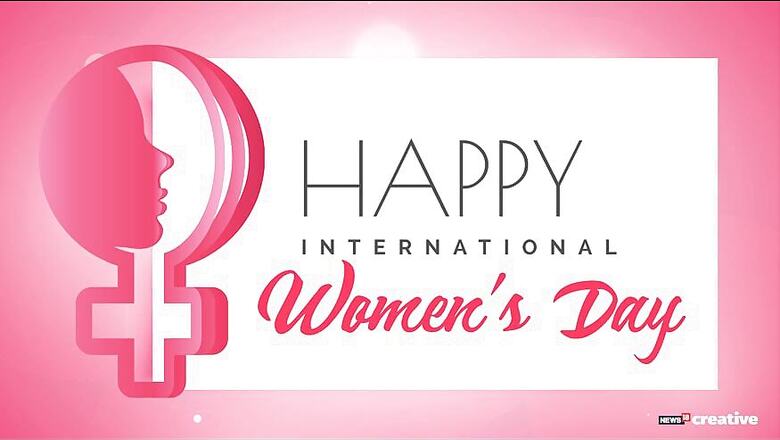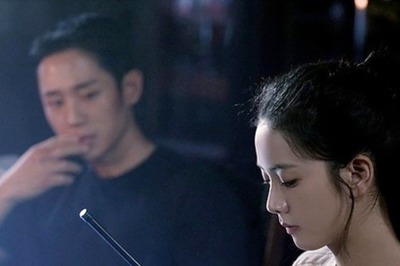
views
During a panel discussion at the Gateway Literature Festival this year, actor-director Nandita Das, passionately argued that she doesn’t like the tag of being a ‘woman filmmaker’. Her standpoint was clear, “When I am directing I'm not constantly thinking and working as a woman director,” said Das.
She contended that she is a filmmaker and her being a woman certainly impacts that. However, she doesn't like to be put into the bracket of ‘women filmmakers’. “My gender is a very important part of my identity but that is not the only way I want to define myself,” Das added.
During the same panel discussion, another actor-director, Aparna Sen, took a completely opposite stand. Sen said that although in her younger years she would often scoff at events like 'women's film festival.' because it sounded like a festival of some underprivileged section, now she has learned to embrace them and celebrate them. "Now I find that I am happy to say that, ‘yes I am a woman director, what I bring to the table is a woman’s point of view’,” said Sen.
Both Das and Sen have been great champions of women's movement in Indian cinema for a long time. They both believe that there is a desperate need for more women participation in Indian movie industry and they have always encouraged new female filmmakers and diversity in voices and perspectives.
However, when it comes to being labelled as a woman filmmaker, while Sen wants to wear that tag as a badge of honour, Das thinks it is an inappropriate way to identify herself based on her gender. She wants to be judged entirely based on her merits (or demerits) as a filmmaker.
There is a definite segregation in women's opinions when it comes to embracing the tag of being a woman. While some want to embrace the tag of being a woman filmmaker, woman writer or a woman journalist there are many who believe that their gender has nothing to do with their work.
In Hollywood too, there are several women who feel that identifying themselves as 'women filmmakers' or 'women writers' amounts to being part of a subgroup that sets them apart from the mainstream and may, therefore, hurt their prospects in the long run. Others even call this tag outdated.
However, over the years, we have seen many women in Hollywood, as well as the literary world, embrace the label and carve out their works within its definition. American novelist Toni Morrison had said during an interview that she always holds on to two labels: Woman and Black.
“First of all, it is true that I’m an African American woman. Secondly, I find that it is a very broad, deep, and wide pool to draw from.” Morrison had said. “It is richer than some other labels. I don't want to be an honorary white writer or an honorary male writer. I really want to take this territory, which is a virgin territory and just explore its many facets which are limitless. Don’t move me out of these categories, don't tell me I am too good to belong to these categories,” she added in that interview.
While Morisson liked to cling on to the category of being a woman, most female writers want to shrug off the tag of being women authors altogether. Perhaps that is one of the reasons why the term authoress has also become obsolete. In recent times we saw one of world's most famous writer, JK Rowling take up a man's pseudonym because she was catering to crime fiction genre, that is mostly dominated by men. The publishing world is extremely discriminatory. Often, women authors are accused of sentimentalism or sappy writing. V.S Naipaul had, in fact, said that no woman writer dead or alive can be his equal because they are all limited by their sentimental perception of the world.
Identifying oneself as a woman filmmaker, woman writer or journalist also have some deeper problems of their own. "Terms like woman journalist or woman writer means that we are essentialising, which means we are seeing these women only as biological beings," says Vindhya Undurti, a professor at the TISS School of Gender Studies.
"The moment someone says she is a woman journalist, it almost implicitly implies that she writes about issues concerning women. While it can be a good thing, it also means that the space for her writing is limited. She is often ghettoised. It also sends out the signal that the only issues that women can talk about are issues related to them (which isn't true), whereas the rest of the public domain is left to men." said Undurti.
It is often the case that when we refer to someone as a woman politician or a woman journalist, we are not only referring to their biological status with the word 'woman' but also to the kind of work they do. It is a common perception that a woman writer or filmmaker will only talk about 'women issues' (although it most certainly is not the case). However, if you think of it, what really are women issues? They are nothing but social issues. Several men have also spoken and written on such issues over the years. A good example is Amartya Sen’s seminal work on ‘missing women’. Amartya Sen showed that in parts of the developing countries like India and China, the ratio of women to men is suspiciously low. He estimated that 100 million women were missing due to gender discrimination, which brought forward the very important issue of sex selection at birth unto the public domain.
Another example of a feminist work by a man in popular culture is the Bengali film Mahanagar, directed by Satyajit Ray. It was an early feminist film in the truest sense. In fact, there have been several films by men, where the male gaze is conspicuously absent be it Mahesh Bhatt’s Arth or Shyam Benegal’s Ankur or Bhumika.
“Some may wish to identify with the tag of being a woman and some may not and it is strictly a matter of personal choice,” said Indu Agnihotri of The Centre for Women's Development Studies.
"One has to appreciate that there are shifts in perceptions over time -- in self-perception as well as public perceptions. When people are comfortable with their achievements then they don't necessarily claim a special status on account of their gender. However, responses vary, we cannot generalise." Agnihotri added.
With the tag of being a woman or without it, even today there is a tendency to not take women seriously or not recognise their achievements and the struggles, prejudices and biases they have to overcome to get to the top.
The public space is still hostile to women. It is a prejudiced construction and over the last twenty years, we are seeing a backlash against women assertions. The real challenge still in our society is the social structure and the entrenched inequality, the embedded policies that hold back women and deny access to equal opportunities. Unfortunately, the biggest challenge is still the misogyny and the backlash that we are seeing in terms of pro-policy intervention that is coming up against the firewall.




















Comments
0 comment